HubSpot CRM Review|
HubSpot CRM
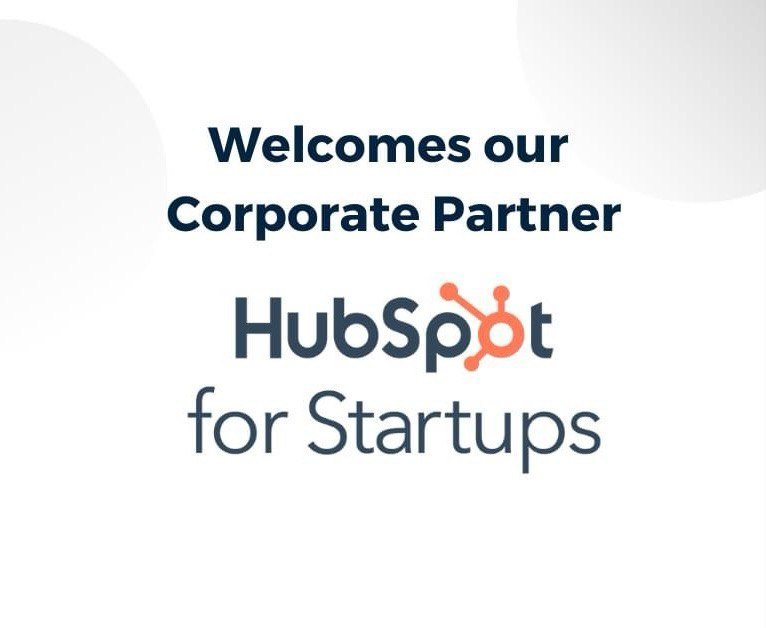

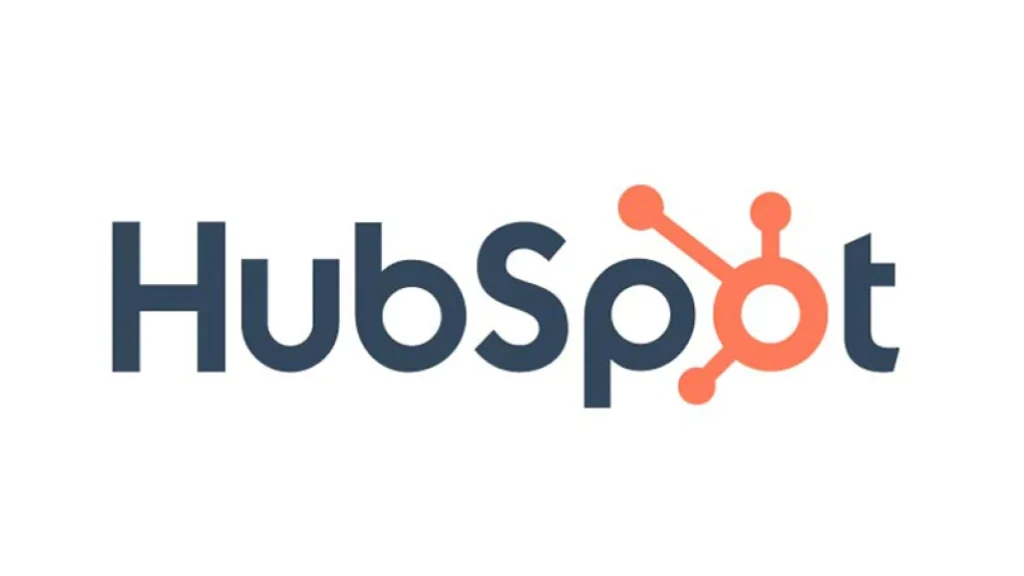
introduction to HubSpot CRM
HubSpot CRM stands out as one of the most versatile and scalable customer relationship management solutions available today. With its free core features and customizable options, it caters to businesses of all sizes—from startups to global enterprises—helping them manage customer data, track interactions, and optimize workflows with ease. Unlike many CRM platforms, HubSpot is known for its seamless integration with a wide range of marketing, sales, and customer service tools, allowing businesses to create a unified system that fuels growth.
One of HubSpot CRM’s key advantages is its simplicity. Users with minimal technical expertise can easily adopt the platform, while more advanced users can leverage its wide range of tools to build complex automation, improve sales pipelines, and deliver personalized customer experiences. HubSpot’s emphasis on inbound marketing aligns perfectly with businesses looking to attract, engage, and delight their customers. Additionally, the CRM’s real-time reporting and analytics provide actionable insights, empowering teams to make data-driven decisions that improve performance and increase revenue.
Whether you’re aiming to streamline your sales process, enhance your customer communication, or gain deeper insights into your business’s operations, HubSpot CRM offers a robust, all-in-one solution to support your growth and success.
HubSpot CRM: The Ultimate Guide for Business Success
HubSpot CRM has emerged as a market leader in customer relationship management, offering businesses a robust, user-friendly platform that transforms how teams manage their customer interactions. As businesses increasingly prioritize efficiency, streamlined communication, and data-driven decision-making, HubSpot CRM delivers a comprehensive solution designed to meet these needs.
Whether you’re a startup, small business, or enterprise, HubSpot CRM offers powerful tools for managing sales, marketing, and customer service. Let’s dive deeper into what makes HubSpot CRM an essential asset for businesses seeking sustainable growth.
What is HubSpot CRM?
HubSpot CRM is a cloud-based platform that helps businesses manage their relationships with customers and prospects. By consolidating sales, marketing, and service activities into one system, it allows teams to operate more cohesively. HubSpot CRM is part of the larger HubSpot ecosystem, which includes Marketing Hub, Sales Hub, Service Hub, and Operations Hub, all designed to provide a complete toolkit for business operations.
The HubSpot Ecosystem: More Than Just CRM
While HubSpot CRM is a crucial tool, the broader HubSpot ecosystem allows businesses to manage virtually every aspect of their customer lifecycle.
- HubSpot Marketing Hub: A suite of tools to attract, engage, and nurture leads through campaigns, content creation, social media, and more.
- HubSpot Sales Hub: Sales-specific tools designed to manage pipelines, close deals, and automate administrative tasks.
- HubSpot Service Hub: A customer service platform that provides ticketing, customer feedback, and knowledge base features.
- HubSpot Operations Hub: Enables seamless data integration, process automation, and operational efficiency by connecting different business tools.
Together, these hubs form an all-in-one solution for businesses looking to grow sustainably and improve customer relationships.
Why HubSpot CRM is the Go-To Solution for Modern Businesses
Businesses today face intense competition, which makes managing customer interactions more critical than ever. HubSpot CRM is specifically designed to meet the unique challenges businesses face, including scaling operations, improving customer experiences, and enhancing team collaboration.
- User-Friendly Interface: HubSpot CRM is widely recognized for its intuitive, easy-to-use interface, making it accessible even to teams with minimal technical expertise.
- Comprehensive Features: From managing contacts to tracking leads and automating sales processes, HubSpot CRM has the capabilities to cover all aspects of CRM management.
- Free Version: HubSpot CRM offers a robust free plan with a surprising number of features, making it a go-to for startups and small businesses with limited budgets.
- Scalability: As businesses grow, HubSpot CRM scales with them. Teams can add advanced features and more powerful tools as they expand.
Key Features of HubSpot CRM That Power Growth
Customizable Sales Pipelines
HubSpot CRM enables businesses to create and customize sales pipelines that reflect their unique processes. The visual pipeline management feature helps sales teams keep track of their deals, from initial lead contact to deal closure. Each stage of the pipeline can be tailored to specific sales processes, providing sales reps with a clear view of where each deal stands.
Email and Activity Tracking
HubSpot CRM’s email tracking feature is a game-changer for sales and marketing teams. You can see when a prospect opens your email, clicks a link, or downloads a document. This data allows your team to follow up at the right time and improve engagement. Additionally, HubSpot CRM tracks all sales and marketing activities, ensuring that every interaction with a customer is logged and accessible for future reference.
Task Automation
Automation is key to boosting productivity, and HubSpot CRM offers robust automation capabilities. You can automate routine tasks such as sending follow-up emails, scheduling meetings, and updating deal statuses. This frees up time for sales reps to focus on high-value tasks, such as closing deals and nurturing relationships.
Lead Scoring and Segmentation
One of the most powerful tools within HubSpot CRM is lead scoring, which helps teams prioritize prospects based on engagement levels. This feature allows businesses to identify which leads are most likely to convert, ensuring that sales teams focus their efforts on the most valuable prospects. Additionally, segmentation tools allow users to divide leads into groups based on factors like industry, location, or behavior, enabling more targeted and effective communication.
Contact Timeline
HubSpot CRM offers a clear, detailed timeline of every interaction with each contact. This includes emails, calls, meetings, and even notes that sales and customer service teams log. With this chronological history at their fingertips, team members can provide personalized and context-rich customer interactions.
HubSpot’s Mobile App
HubSpot CRM’s mobile app ensures that sales and marketing teams can manage their contacts, deals, and communications on the go. The app offers many of the features found on the desktop version, such as viewing contacts, tracking deals, sending emails, and even scheduling meetings, all from a mobile device.
Advanced Analytics and Reporting
Data-driven decision-making is at the heart of any successful business. HubSpot CRM offers advanced analytics tools that provide insights into sales performance, customer behavior, and team productivity. Users can customize their reporting dashboards to track KPIs and metrics that matter most to their business. These insights allow businesses to identify opportunities for growth, improve conversion rates, and optimize their strategies.
HubSpot CRM’s Integrations
HubSpot CRM integrates with over 1,000 third-party apps and platforms, from popular tools like Slack, Zoom, and Gmail to more industry-specific platforms like Shopify, Mailchimp, and QuickBooks. These integrations ensure that HubSpot CRM can adapt to the specific needs of your business, improving overall efficiency by connecting various parts of your workflow.
HubSpot CRM for Marketing Teams
For marketing teams, HubSpot CRM offers powerful tools that align perfectly with sales activities. Marketers can use the CRM to track leads, monitor customer behavior on the website, and measure the performance of campaigns. The integration between HubSpot Marketing Hub and CRM ensures that both sales and marketing teams are working with the same data, facilitating better collaboration and higher conversion rates.
HubSpot CRM for Customer Support
HubSpot CRM’s ticketing and help desk features make it an ideal tool for customer support teams as well. The CRM allows support teams to track customer issues, manage support tickets, and respond more efficiently to inquiries. With a 360-degree view of each customer’s history, support teams can offer faster and more personalized service.
HubSpot CRM: Empowering Remote Teams
With the rise of remote work, HubSpot CRM has become even more valuable for businesses looking to maintain productivity and collaboration. Its cloud-based platform allows teams to access the system from anywhere in the world, ensuring that no matter where your team members are located, they can remain connected and aligned on customer activities.
The HubSpot CRM Pricing Model: Accessible to All Businesses
One of the key selling points of HubSpot CRM is its accessible pricing model. The free tier includes many essential features, such as contact management, sales pipeline tracking, email tracking, and task automation. As businesses grow, they can upgrade to paid plans that unlock additional functionality, such as advanced reporting, more robust automation, and deeper customization options.
The Future of HubSpot CRM
HubSpot CRM continues to evolve as a leader in the CRM space, consistently adding new features and integrations to meet the needs of businesses in an ever-changing market. With a commitment to innovation, HubSpot remains at the forefront of customer relationship management, empowering businesses to grow better, improve efficiency, and provide exceptional customer experiences.
Conclusion
HubSpot CRM is much more than just a customer management tool; it’s a comprehensive platform that can transform how businesses manage their relationships with prospects and customers. From automation to lead nurturing, contact management to sales pipeline visibility, HubSpot CRM offers the features businesses need to succeed in a competitive market.
Whether you’re just starting out or scaling up your operations, HubSpot CRM provides the tools and flexibility to support your growth at every stage. By integrating marketing, sales, and customer service, it ensures seamless collaboration and optimized performance across the board. For businesses looking to elevate their customer relationship strategies and enhance their operations, HubSpot CRM is an indispensable asset.
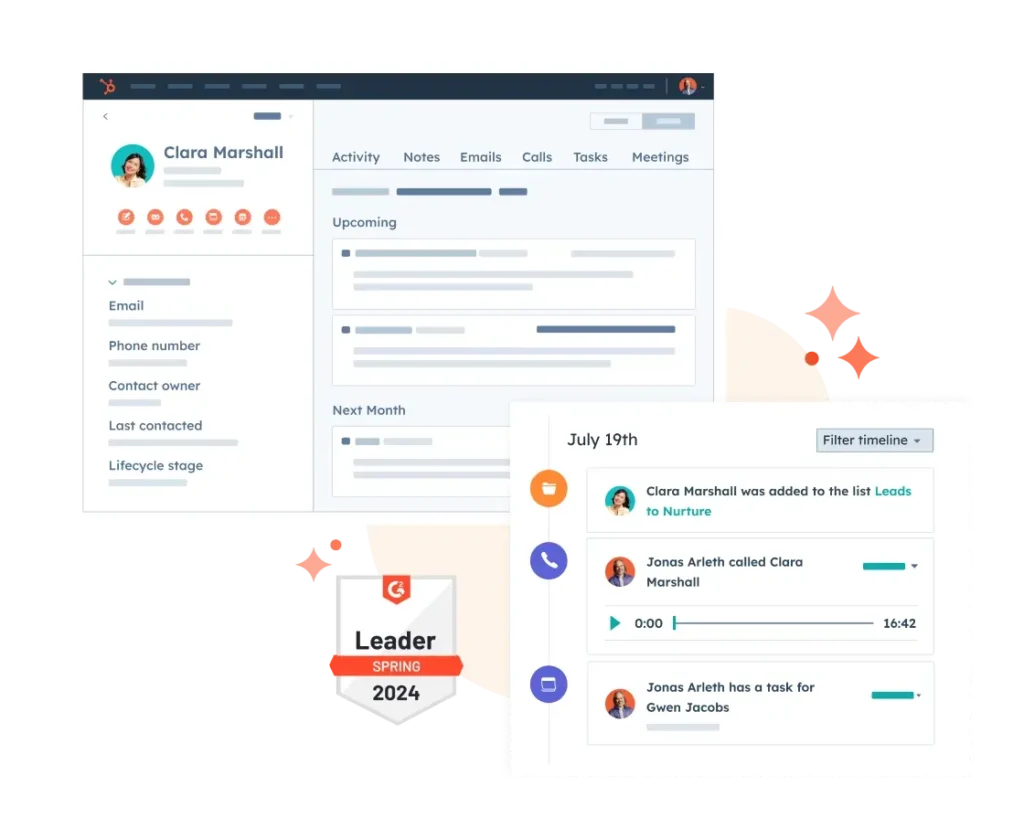
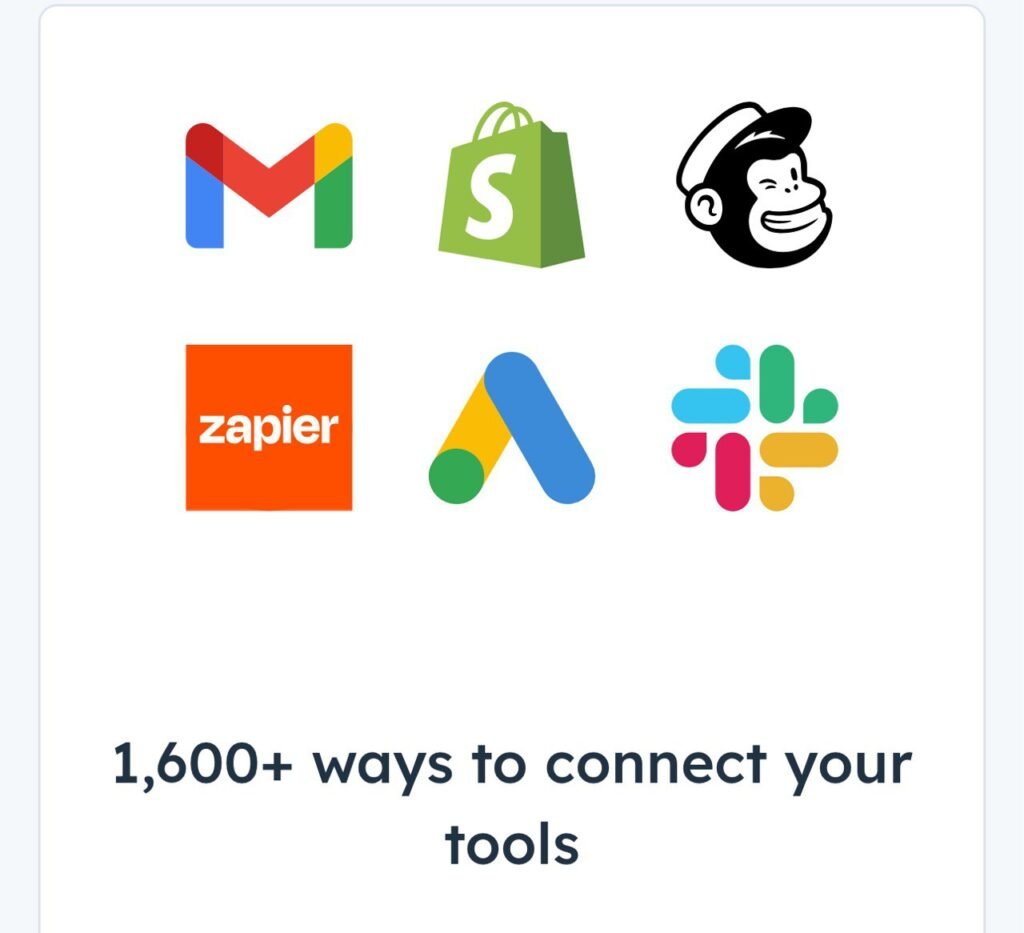
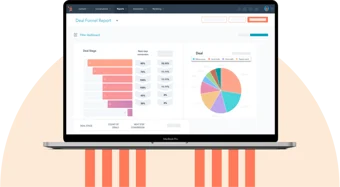
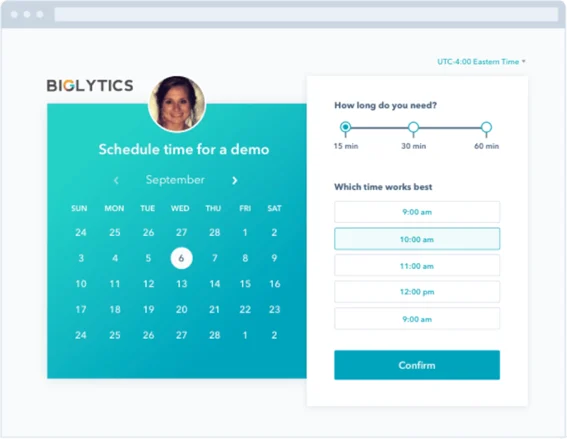
in addition to its core functionalities, HubSpot CRM stands out for its flexibility and scalability, making it an ideal solution for businesses of all sizes. It enables users to get a 360-degree view of customer interactions across multiple channels—email, phone calls, social media, and more—helping teams deliver a personalized and consistent customer experience.
One of HubSpot CRM’s most appealing aspects is its integration with HubSpot’s broader ecosystem, including the Marketing, Sales, and Service Hubs. This connectivity allows users to automate marketing campaigns, track sales deals in real-time, and provide top-tier customer service—all within one platform. The CRM also features a robust set of analytics and reporting tools, which give businesses the ability to monitor performance, forecast sales, and adjust strategies based on data-driven insights.
HubSpot CRM offers a rich marketplace with third-party app integrations, enhancing functionality and allowing businesses to tailor the platform to their specific needs. Additionally, its mobile app ensures teams can stay connected and manage tasks on the go, promoting seamless productivity no matter where they are.
The CRM’s user interface is designed for simplicity, meaning that even those without technical expertise can quickly get up to speed. With customizable pipelines, email templates, and detailed contact profiles, HubSpot CRM fosters better collaboration, helping teams stay organized and focused on what matters most—growing and nurturing customer relationships.
Why HubSpot CRM is Essential for Modern Businesses
In today’s fast-paced business environment, managing customer relationships efficiently is crucial to staying competitive. HubSpot CRM is designed to meet these modern demands, offering businesses of all sizes a robust solution to organize, track, and nurture their leads. Unlike many other CRMs, HubSpot is both user-friendly and powerful, making it an indispensable tool for teams looking to streamline their sales, marketing, and customer service efforts.
Free Yet Feature-Rich
One of HubSpot CRM’s most attractive features is that it’s free to use. Many CRMs on the market charge significant fees, but HubSpot offers a suite of essential tools at no cost. Even in its free version, HubSpot provides powerful tools like contact management, deal tracking, email scheduling, and integration with marketing and customer service modules. This makes it ideal for startups and small businesses that may not have the budget for premium CRM solutions.
Scalability: Growing with Your Business
HubSpot CRM isn’t just for small businesses—it’s designed to grow with your organization. As your business scales, you can unlock additional features through HubSpot’s paid tiers, which offer advanced automation, customization, and reporting capabilities. Whether you’re a team of 5 or 500, HubSpot can accommodate your needs with its flexible offerings. The platform’s modular approach allows businesses to adopt only the tools they need, avoiding unnecessary complexity.
Intuitive and Easy to Use
HubSpot CRM stands out due to its simplicity and ease of use. Even users who are not tech-savvy can quickly navigate the system and leverage its capabilities without extensive training. The clean, intuitive interface ensures that sales, marketing, and customer service teams can collaborate effectively and stay on top of tasks. Moreover, HubSpot offers extensive support, including tutorials, guides, and a vibrant community forum, which helps users quickly resolve any challenges they might face.
Automation for Efficiency
One of the most significant advantages of using HubSpot CRM is its automation features. Routine tasks like lead follow-ups, email responses, and data entry can all be automated, freeing up valuable time for employees to focus on high-priority tasks. HubSpot’s workflows enable businesses to create tailored automations that align with their sales processes, ensuring that no opportunity slips through the cracks.
For example, you can set up automatic notifications for when a prospect opens an email, visits a webpage, or fills out a form. This immediate feedback allows sales teams to act swiftly, ensuring they can engage with leads at the right time. The CRM also integrates with HubSpot’s Marketing Hub, enabling seamless automation between marketing campaigns and sales efforts.
Data-Driven Decision Making
HubSpot CRM also empowers businesses with deep insights into their sales pipelines through real-time analytics. By tracking performance metrics, businesses can identify bottlenecks, improve processes, and make more informed decisions. The reporting dashboard is fully customizable, allowing users to tailor their analytics to focus on key performance indicators (KPIs) specific to their goals.
Moreover, HubSpot CRM makes it easy to forecast sales, giving businesses a clear picture of where their deals stand and what actions are needed to move them forward. This kind of data-driven approach ensures that teams are always aligned with their objectives, improving overall productivity.
Seamless Integration with Third-Party Tools
Integration is another key strength of HubSpot CRM. The platform connects with hundreds of third-party applications, including email platforms like Gmail and Outlook, e-commerce solutions like Shopify, and other productivity tools such as Slack, Zapier, and Microsoft Teams. This integration ensures that your team can work efficiently across different tools without having to switch platforms constantly.
Additionally, HubSpot’s API allows businesses to create custom integrations tailored to their unique needs. This flexibility ensures that HubSpot CRM can fit seamlessly into your existing technology stack.
A Unified Solution for Sales, Marketing, and Customer Service
Unlike other CRMs that focus exclusively on sales, HubSpot CRM brings sales, marketing, and customer service together on one platform. This unified approach ensures that all customer-facing teams have access to the same data, enabling better collaboration and providing customers with a consistent experience.
Marketing teams can pass qualified leads directly to sales teams through the CRM, ensuring a smooth handoff. Similarly, customer service teams can view all prior interactions with a customer, making it easier to resolve issues quickly. This 360-degree view of the customer ensures that no team operates in silos, boosting overall efficiency and customer satisfaction.
HubSpot CRM: A Future-Proof Solution
In a world where customer expectations are constantly evolving, businesses need tools that can adapt and grow with them. HubSpot CRM’s frequent updates, extensive features, and scalability make it a future-proof solution. As customer relationship management continues to evolve, HubSpot is well-positioned to remain at the forefront of innovation.
In conclusion, HubSpot CRM is more than just a tool—it’s a comprehensive platform that empowers businesses to manage their customer relationships efficiently. Whether you’re a startup or a growing enterprise, HubSpot CRM provides the flexibility, scalability, and ease of use needed to succeed in today’s competitive landscape.

